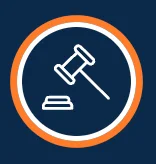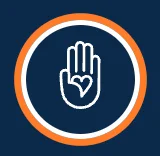If a loved one falls in a nursing home, provide medical care, including emergency care, if appropriate. Report the fall to the facility. Assess the environment to see if changes need to be made to prevent additional harm and optimize quality of life.
Contact a Greenville nursing home abuse attorney if the fall may have resulted from abuse or neglect.
Recognizing the Seriousness of a Nursing Home Fall
Nursing home falls are serious. They can cause immediate harm, complications, and overall health decline.
- Ten percent of people who fall in a nursing home sustain serious injury.
- Injuries may impair mobility and lead to broken hips, feet, and toes. A person may sustain a sprained ankle or torn ligaments.
- Falling may create a fear of walking, leading to less physical activity and social withdrawal.
- Injuries may make a person more likely to fall again.
- Increased care may be needed for a resident following a nursing home fall.
- Overall, lower quality of life and increased morbidity may result.
Recognizing the seriousness of a nursing home fall is important to prevent falls and respond appropriately when a fall occurs.
Immediate Steps To Take After a Loved One Falls in a Nursing Home
What to do when a loved one falls in a nursing home starts with an immediate response.
Seek emergency medical care
Seek medical care. Injuries may be more serious than they initially appear. Look for signs of severe injury like confusion, loss of consciousness, and difficulty breathing. Localized pain may indicate a broken bone.
Nursing home care providers should be trained in fall response. In addition, emergency dispatchers can provide instructions to keep the person still and comfortable until help arrives.
Report the fall
Tell the nursing home about the fall. Make the report in writing. The nursing home may have a form to use. Include the day, time, people involved, people present, and the environment. Include photographs of the area. State that an injury occurred. Keep a copy of the report.
Preserve evidence
Document the accident scene and preserve evidence. If you have access, photograph the area where the fall occurred.
Identify witnesses and those involved. Save anything related to the fall, such as the clothes the person was wearing and mobility assistance devices. Your nursing home negligence attorney can help you gather evidence in the possession of the nursing home, including surveillance video, nursing home operation logs, and names of workers on duty.
Continue to monitor the person
In the hours and days following a fall in a nursing home, monitor the person closely. Make sure the person knows how to call for help. Ensure they can contact care providers to ask questions and seek assistance.
Make changes/monitor response
Evaluate what must be done for future safety. The nursing home must address individual needs and facility safety.
As the person injured or a family member, follow up with the facility. Ask them what they have done to investigate the cause of the fall and what their conclusions are. Determine if the response has been adequate. Ask for your role to mitigate the risk of future harm.
Tell the authorities
If appropriate, report the nursing home fall to public officials. It may be appropriate to call Adult Protective Services or the South Carolina Long Term Care Ombudsman. If a crime may have occurred, contact law enforcement.
Requesting a Detailed Incident Report
An important step in what to do after a nursing home fall is to request a detailed incident report. The report should include the following:
- Factual findings of what happened, when and where the fall occurred
- How the fall occurred, and environmental factors
- Harm that resulted, the resident’s condition
- Recommendations to prevent additional falls
Injuries and Medical Treatment
A variety of injuries, including brain injury, broken bones, spinal cord injury, soft tissue damage, cuts, and internal organ damage, can occur because of a nursing home fall.
Medical care can document the harm that has occurred. The person may need mental health care.
In addition, the injured person will need an assessment to determine their needs going forward.
They may need changes in footwear, mobility assistance, and personal care. Environmental changes, such as even flooring, good lighting, and handrails, may help.
Are Nursing Homes Liable for Falls?
A nursing home may be liable for a fall. The question is whether the nursing home did enough to prevent the fall. Failures may be related to the facility in general. Liability may be based on how the individual was treated.
The answer to whether nursing homes are liable for falls is sometimes, but it depends. A nursing home is liable if it did not take reasonable steps, under the circumstances present, to prevent the fall.
Understanding Legal Responsibility
To receive compensation for a nursing home fall, you must bring a case. Your attorney can represent you in the steps to claim compensation for a nursing home fall. As the victim or the victim’s family, you initiate the case by filing a legal claim.
You must prove liability and your right to compensation.
A claim may seek economic and non-economic damages. A lawyer for nursing home abuse and neglect can represent you. There is a time limit to start a claim.
How A Greenville Nursing Home Abuse Lawyer Can Help
After a nursing home fall, a Greenville nursing home abuse lawyer can help with:
- Documenting medical care, recovery, and pain and suffering
- Preserving evidence, accessing evidence from the nursing home
- Reporting the fall, getting a copy of the nursing home incident report
- Evaluating whether negligence occurred and the legal claim
- Pursuing compensation, settlement, or judgment
- Understanding the steps to take after a nursing home fall
- Answering your questions
- Minimizing the strain of the legal system
Contact
Jordan Law Center represents families in the steps to take if a loved one falls in a nursing home. Contact us to talk to a lawyer.







“There is not enough GREAT THINGS I could say about Jordan Law Center.”